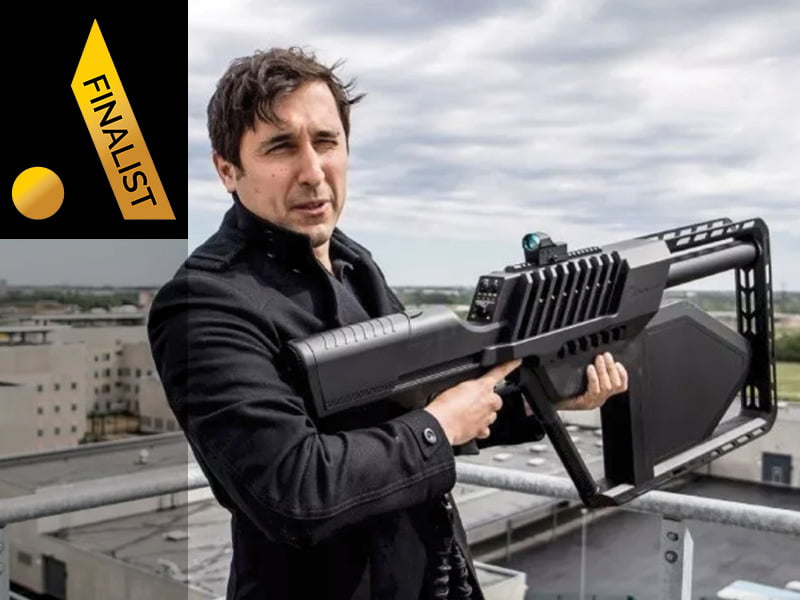It’s 7am as six rotor blades begin to whir on top of an agricultural drone the size of a dinner table. The machine hovers, spraying arms crouched around the central body like the legs of a spider, issuing a fine mist.
But this isn’t some lush pastoral setting, and the target of this spray isn’t a blanket of budding crops – this is downtown Sydney and the spray is a weaponised biological agent targeting morning commuters as they get off the train.
This is the horrorscape chief executive Oleg Vornik and the team at DroneShield are fighting to avoid.

First launched back in 2014, DroneShield was a pioneer in the anti-drone market. Where so many consumers saw a drone as a Christmas present for their tech-obsessed dad, Mr Vornik saw a technology that would evolve into a major criminal and terrorist threat.
DroneShield is a finalist for the InnovationAus Awards for Excellence 2021 in the Defence category, sponsored by Microsoft Australia.
“As drones continue to become more and more part of our society, along with all the positive uses like real estate agents taking movies of properties or people flying around beaches, come darker uses,” Mr Vornik said.
Terrorist organisations strapping grenades or chemical or biological weapons to them; ISIS conducting surveillance on the battlefield; criminals delivering drugs and cell phones and escape kits into prisons; drug cartels delivering drugs over the border.
These are, unfortunately, all very real and current criminal applications for commercially available drones like the one you might buy on Amazon for around A$2000.
Drone technology today has come a long way in a short period of time. “It’s unbelievable,” says Mr Vornik. “You can drive a drone wearing first person VR goggles like Oculus.”
“You feel like you’re inside the drone. They’re very easy to fly and the flight times have extended to hours at a time and distances that can often easily exceed 10km.
“[We also worry about] people flying drones around airports. Sometimes without any nefarious intent, but plane engines are built to withstand bird strikes, not metal objects with lithium-ion batteries. Those do blow up engines.”
The DroneShield suite of products vary in size and appearance from a 1kg device that can be worn on the body, to the DroneGun (which can be pointed in the general direction of a drone or fleet to disable an incoming threat), to permanent infrastructure installed on site.
The devices are highly specialised and sensitive to detect drones within a specified radius. They can distinguish a drone from, say, a bird or the fan on a roof-mounted cooling tower, and then disrupt the signal between the drone and its operator, which forces the drone to land. The drone can then be retrieved and forensically examined. DroneShield can also trace the location of the original operator.
DroneShield can detect and defeat any number of drones at once, meaning it is effective against fleets of drones: a style of attack that is of growing concern.
“In fact, the drones themselves would start getting confused before our equipment would,” Mr Vornik says.
In addition to locating 100 per cent of their research and development operations in Australia, Mr Vornik says that mum-and-dad investors are really the financial lifeblood of the company.
DroneShield IPO’d on the ASX in 2016 and to this day the stock is predominantly held by around 8000 private shareholders.
“When we started the counter-drone market did not really exist,” says Mr Vornik. “It was really tough: like flying a plane and fixing it at the same time.”
“The technology was brand new innovation, the technology itself was developing really rapidly, you’re building the team at the same time, you’re raising money at the same time, you’re kind of doing everything in parallel.
“We were fortunate that we managed to list on the ASX quite early on in [the company’s] life cycle. Without that public listing it would have been very hard for us.”
At this time, most of DroneShield’s customers are government agencies, although there is a growing market for drone-disabling products in commercial spaces like sports arenas.
The InnovationAus Awards for Excellence 2021 black-tie gala dinner will be held on December 1. You can reserve your seat here.
Do you know more? Contact James Riley via Email.
